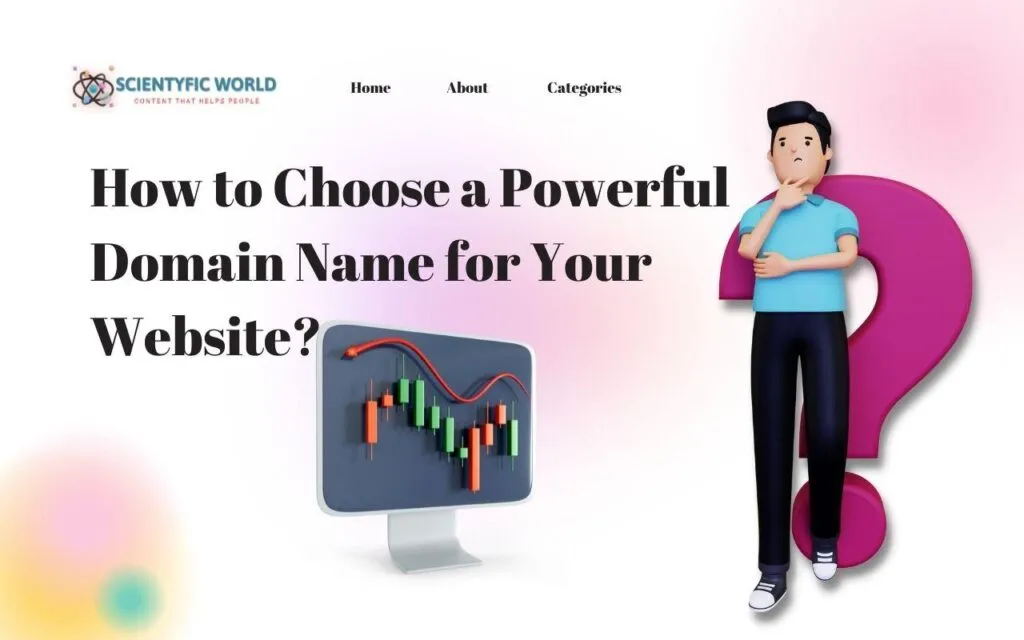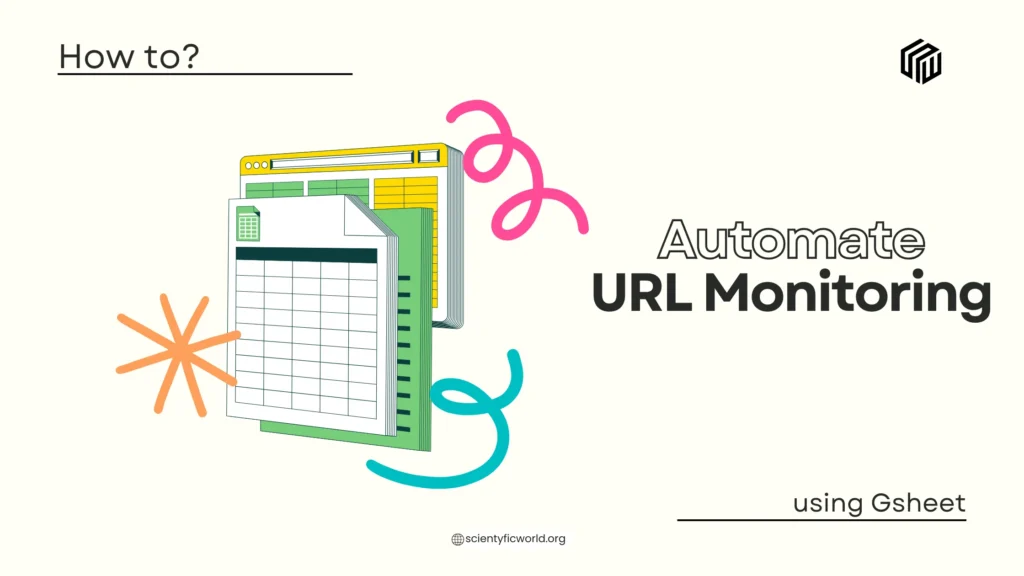This article contains affiliate links, if you click those links you'll get a discount and I will get a commision from that.
If you are starting a new website, you will need to choose a powerful domain name. This can be a difficult task, but there are some tips that can help you choose the perfect domain name for your new business.
But first,
What is a Domain name?
A domain name is an address where you can be found online. It’s how you’ll express your website or business identity. It’s how customers will find you. And it’s what makes you unique on the web.
Just like your home’s address, a domain name is unique to your website. It’s made up of a series of letters and numbers, and it can be used to find your website just like your home’s address can be used to find your house.
Why is it important?
Domain names are important because they are how people find your website.
It is used to identify one or more IP addresses. An IP address is a unique number that identifies a computer on the Internet. Computers use IP addresses to communicate with each other.

A good domain name is important because it is how people find you on the Internet and it is how you brand your business. It is like your company’s name or your product’s name. It is how people remember you and it is how they find you. If you have a good domain name, people will be able to find your website more easily and they will be more likely to remember your name. A good domain name can also help to brand your business and make it more professional.
How is it made?
Just like your home address, your domain name is unique to your website. It’s made up of a series of letters and numbers, and it can be used to find your website just like your home’s address can be used to find your house.
A domain name is made up of two or more parts, separated by dots. The part to the left of the dot is the most important part of it. It is called the second-level domain, and it is the part that identifies your website. The part to the right of the dot is called the top-level domain, and it identifies the type of website you have.
The most common top-level domains are .com, .net, and .org. These are called generic top-level domains, or gTLDs. There are also many other top-level domains, such as .biz, .info etc.
Generic top-level domains:
A generic top-level domain (gTLD) is an Internet domain that does not have any geographical or country-specific connotations. They are the most common type of top-level domain and include domains such as .com, .org, and .net.
Generic top-level domains were originally meant to indicate the purpose of a website, with .com representing commercial sites, .org representing non-profit organizations, and .net representing networks or technical organizations. However, these days, anyone can register a .com domain, regardless of their purpose.
While gTLDs are the most common type of top-level domain, there are also other types of top-level domains, such as country-specific domains (e.g. .us, .ca, .uk) and sponsored domains (e.g. .gov, .edu).
Now here comes my tips for you.
Tips:
When it comes to choosing a domain name for your website, it’s important to choose one that is both powerful and memorable. Here are a few tips to help you choose a domain name that will help your website stand out from the crowd:
- Keep it short and simple
Your domain name should be short and simple. It should be easy to remember and easy to spell. Avoid using hyphens or numbers in it. See as short your domain is, it would be easier to remember and so when a person finds your site for the first time, it would be a lot easier to remember the name.
- Make it easy to pronounce
If your domain name is difficult to pronounce, people are less likely to remember it. Choose a domain name that is easy to say and spell out so people can find your website with ease.
- Make it relevant to your business
Your domain should be relevant to your business. It should be descriptive of what you do or what you offer.
- Use keywords
If you want your website to be easily found by potential customers, you should use keywords in your domain name. This will help your website show up in search engine results.
- Avoid trademarked terms
You should avoid using trademarked terms in your domain name. This could get you into legal trouble.
- Make it unique
There are millions of websites on the internet, so you will need to make sure your domain is unique. Avoid using common words or terms that are already being used by other websites.
- Check availability
Before you register your domain name, you should check to see if it is available. You can do this by using a domain name checker tool.
- Register your domain
Once you have found an available domain name, you will need to register it. You can do this through a domain name registrar like Godaddy.
- Protect your domain
Once you have registered your domain, you should protect it. You can do this by setting up domain privacy. This will protect your personal information from being publicly available.
- Choose a web host
After you have registered your domain name, you will need to choose a web host. This is the company that will host your website.
Now if you really want the best quality hosting which is also affordable for your website, then I would like to introduce you to Hostinger. Try Hostinger now!
- Launch your website
After you have chosen a web host, you will need to launch your website. You can do this by creating a website or using a website builder.
By following these tips, you can choose a domain name that is both powerful and memorable. With a great domain name, you can help your website reach new heights.
It’s a common question that comes up when choosing a domain name for a new website or business –
Should it be grammatically correct?
While there’s no right or wrong answer, there are some things to consider that may help you make your decision.
If you’re targeting a global audience, then a grammatically correct domain name is probably a good idea. This is because people from different countries may have different rules for grammar, and a domain name that is grammatically correct in one language may not be in another. By having a grammatically correct domain name, you can avoid any confusion or potential misunderstandings.
However, if you’re targeting a specific country or region, then you may be able to get away with a domain name that isn’t grammatically correct. This is because people in that area are likely to be more familiar with the local language and grammar rules. For example, a website targeting Australians may be able to get away with a domain name like “www.bestbarbiere” in Sydney, as people in that country are likely to understand that the word “Barbiere” is the Italian word for “barber”.
Talking about this website itself, the name “Scientyfic World” is never grammatically correct, it should be “Scientific World“. But it has never become a problem till now. And I’m sure it will never be.
Ultimately, the decision of whether or not to have a grammatically correct domain name is up to you. If you’re unsure, it may be worth doing some research into your target market to see what would be most appropriate.
Well, here I have another a little bit interesting question.
Well when I started doing blogging and all, this was the first question came up to my mind that should I give my website a more realistic name which has a more realistic meaning or should I go for a random name which may not have real meaning.
Is it required to have a real meaning of your domain name?
When it comes to domains, there are a lot of different opinions out there. Some people believe that it is necessary to have a real meaning behind your domain name, while others believe that it is not necessary. So, what is the truth?
Well, the answer isn’t as simple as you might think. It really depends on what you are using your domain name for. If you are just using it for a personal website or blog, then it probably doesn’t matter too much what the meaning of your domain name is. However, if you are using it for a business website, then it is important to have a domain name that accurately represents your business.
Think about it this way – if you have a domain name that is confusing or doesn’t make sense, then potential customers are going to have a hard time finding your website. On the other hand, if you have a domain name that is easy to remember and accurately describes your business, then customers are going to be able to find your website with ease.
So, if you are planning on using your domain name for a business website, then it is important to make sure that you choose a domain name that has a real meaning behind it. However, if you are just using your domain name for a personal website or blog, then the meaning behind your domain name is not as important.
Now here is again a small tip for newbies.
If you’ve launched your website for your business, to rank it well on search engines, then you’ve to publish blogs on your website. Now it may be quite hard to do blogging alongside maintaining your website simultaneously. So, in that case, you may take the help of AI content generators. You just have to put your keyword and the rest will do the AI.
If you want to know about some great AI content generators, then you may read this blog-
6 Best AI Content Generators that you should know in 2022
Or, if you want to make your own AI content generator then you may read this blog-
How do I make my own AI Content Generator? | Make one for you too | Complete Guide
Well, that’s all for this blog. Uh, I think I have taken too much time to a small answer i.e. “how to choose a potential domain name for your website”. But I think you will get some value from this blog and if that is so then please share this blog.



